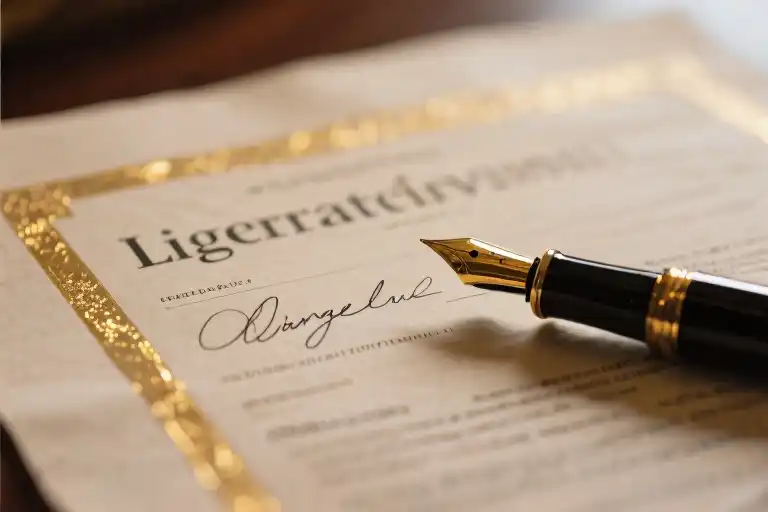The moment my inbox displayed that long-awaited email with the subject line “Representation Offer,” my hands shook so violently I nearly dropped my coffee. After fifteen years of writing—three complete manuscripts, hundreds of query letters, and enough rejection emails to wallpaper my apartment—I’d finally received the golden ticket: a literary agent wanted my memoir.
What most aspiring authors don’t realize is that this exhilarating moment isn’t the finale; it’s the first scene of an entirely new act. Industry surveys show that 82% of debut authors mistakenly believe signing with an agent guarantees publication, when in reality, it merely unlocks the starting gates of a complex negotiation and collaboration process.
This guide exists because I wish someone had handed me three crucial truths when that life-changing email arrived:
- Leverage is temporary – The power dynamic shifts the moment you say “yes”
- Contracts contain landmines – Standard clauses can silently cost you six figures
- Agents aren’t fairy godmothers – Their job is to sell, not to nurture your art
That coffee-stained morning when I stared at my screen, I didn’t know how to evaluate the offer’s terms, whether to notify other considering agents, or even what questions to ask during “the call.” Like most writers, I’d spent years studying how to get representation but zero time learning what to do once I got it.
The publishing industry thrives on these information gaps. Seasoned agents often prefer working with inexperienced authors precisely because they don’t know to negotiate subsidiary rights percentages or question non-compete clauses. My own contract initially contained a provision that would have granted my agent 15% of earnings from any future book—even those written after our professional relationship ended.
What follows isn’t just advice—it’s the tactical playbook I needed when excitement nearly overrode my common sense. We’ll walk through the emotional first 72 hours, dissect contract terminology that actually means “you’ll lose creative control,” and reveal how to maintain authority in a system designed to diminish it.
Because here’s the uncomfortable truth no one mentions at writers’ conferences: getting an agent is less about being discovered than learning to navigate a business partnership where your manuscript becomes a commodity. The skills that made you a great writer won’t necessarily protect your interests when reviewing agency agreements or discussing royalty splits.
But this isn’t a cautionary tale—it’s an empowerment manual. That shaky-handed morning marked the beginning of my real education in authorship, and with the right preparation, it can launch yours too.
The Finish Line That Wasn’t
For fifteen years, I carried a single image in my mind: the moment a literary agent would say “yes.” That phone call, that email – it shimmered in my imagination like a golden ticket, the ultimate validation after three manuscripts, hundreds of rejections, and enough self-doubt to fill a library. When it finally happened last spring, the reality felt nothing like my childhood fantasy.
The publishing industry operates on a cruel joke – what authors perceive as the finish line is actually the starting blocks. While we obsess over query letters and manuscript polish, few talk about the real game that begins after representation. I learned this through two writer friends who signed with agents the same month I did, with radically different outcomes.
Sarah, a brilliant essayist, accepted the first offer she received from a reputable agency. “I didn’t want to seem difficult,” she told me later. Her contract included a non-negotiable 20% foreign rights commission (industry standard is 15%) and a two-year automatic renewal clause. When her agent failed to sell her collection after eighteen months, Sarah found herself legally trapped while watching her manuscript grow stale.
Then there’s Michael, who received three competing offers. He used that leverage to negotiate a 12% ebook royalty rate (most agencies take 15-25%) and a six-month performance review clause. When his first agent underperformed, he cleanly transitioned to a better fit without legal entanglement. Their manuscripts were equally strong; their publishing trajectories diverged at the bargaining table.
This power imbalance stems from publishing’s unspoken hierarchy. Imagine an inverted pyramid: at the wide top sit thousands of desperate authors, funneling down through agents to the narrow tip where a handful of acquiring editors hold all the cards. Agents necessarily focus on their top-selling clients – the rest become portfolio filler. Without understanding this dynamic, new authors often sign contracts that sacrifice long-term flexibility for short-term validation.
The most dangerous myth? That getting an agent guarantees publication. In reality, most represented manuscripts never sell. Agenting statistics show only about 30% of signed debut authors secure traditional publishing deals. Those who do often face 12-18 additional months of revisions, submissions, and more rejection before landing a contract – if they ever do.
What no one tells you during the querying trenches is that signing with an agent shifts the battle rather than ends it. You’re not graduating – you’re transferring to a more advanced program where the stakes include your creative control, financial future, and career trajectory. The terms you agree to in those first starry-eyed days will echo through every subsequent deal, which is why understanding representation as a business partnership rather than a crowning achievement changes everything.
When my own offer came, I nearly said yes immediately. Fifteen years of longing almost overrode common sense. But remembering Sarah’s story, I asked for two weeks to consider – a request that later allowed me to negotiate key contract points my agent initially presented as non-negotiable. That pause, that willingness to temporarily sustain hope rather than clutch at certainty, made all the difference.
The Golden 72-Hour Playbook
That phone call changes everything. One minute you’re another hopeful writer refreshing your inbox for the hundredth time, the next you’re sitting with sweaty palms listening to a literary agent say those magic words: “We’d love to represent you.” Here’s what most first-time authors don’t realize – those first three days after receiving an offer of representation contain more career-defining decisions than the previous three years of writing combined.
The Art of Not Saying Yes
When excitement threatens to override judgment, remember this: The moment you receive an offer, you hold temporary leverage in an industry where power typically flows the other way. Industry veterans know to say some version of: “Thank you so much for this incredible opportunity. I need to discuss with my partner/family/writer’s group before making such an important decision. Would two weeks be acceptable for my response?”
This accomplishes three critical things:
- Prevents impulsive commitment you might regret
- Signals professional approach (agents respect this)
- Creates space to notify other agents considering your work
The Delicate Dance of Multiple Offers
If you have full manuscripts out with other agents, send immediate but gracious notifications:
Subject Line: Exciting Update – Offer of Representation
Body Template:
“Dear [Agent Name],
I wanted to share that I’ve received an offer of representation for [Book Title] from [Offering Agency]. Because I have such respect for your work with authors like [Relevant Client], I wanted to give you the courtesy of knowing this development. If you’re still considering my manuscript, I’d be happy to discuss timing for your decision. With appreciation, [Your Name]”
This isn’t gamesmanship – it’s professional courtesy that often accelerates responses. About 40% of multiple-offer situations see competing agents make their own offers within 48 hours of receiving such notes.
The Make-or-Break Phone Questions
When speaking to offering agents, these often-overlooked questions reveal more than standard “vision for my book” inquiries:
“Walk me through your editorial process before we go on submission. What percentage of represented authors don’t make it to the submission stage?” (Good agents will have clear revision protocols)
“Which three editors come immediately to mind for this project, and why?” (Tests their specific market knowledge)
“How do you handle situations where we disagree strategically?” (Reveals collaboration style)
Emotional Survival Tactics
Keep these psychological anchors handy:
- Tape a note to your phone: “This is a job interview FOR THEM too”
- Schedule calls for mornings when mental clarity is highest
- Prepare a 3-question “dealbreaker” list to prevent starstruck concessions
What feels like a finish line is actually the first real test of your professional instincts. The decisions made in these 72 hours ripple through every future royalty statement and creative decision. Breathe. Think. Then act.
The Invisible Battlefield in Your Contract
The moment you receive an offer of representation, the real work begins. What most authors don’t realize is that the contract sitting in your inbox isn’t just paperwork—it’s a battlefield where your future earnings and creative control will be decided. Having reviewed dozens of contracts from both sides of the table, I’ve learned that the difference between a career-making deal and a soul-crushing obligation often comes down to five key clauses.
The Red Flag Checklist
Subsidiary Rights
This innocent-looking section determines who controls adaptations (film, audiobook, foreign translations) and how profits are split. Standard contracts often claim 50% of these rights for the agency, but established authors rarely accept more than 15-20%. One client discovered her agency had quietly included gaming rights—a $200,000 oversight she caught during negotiations.
Automatic Renewal Triggers
Many contracts contain language that automatically extends representation unless specifically terminated. Look for phrases like “continuing representation of all future works” or “automatic renewal after 12 months.” I once worked with an author stuck with an underperforming agent for three extra years because of this clause.
Termination Conditions
The exit strategy matters as much as the entrance. Beware of contracts requiring 90+ days notice or claiming perpetual rights to submissions already sent to publishers. A fair agreement should allow either party to terminate with 30-60 days notice, with clear provisions for handling pending submissions.
Commission Structure
While 15% is standard for domestic sales, anything above 20% for foreign/subrights deserves scrutiny. Some agencies take 30-40% of translation deals while doing minimal work. Always ask: “Who’s actually handling these subsidiary sales?”
Non-Compete Clauses
Overly broad restrictions on working with other professionals (editors, publicists) can handcuff your career. One memoirist found herself prohibited from hiring an independent publicist without her agent’s approval—three years after their contract ended.
Negotiation Playbook: Three Real-World Scenarios
The Commission Standoff
Agent: “Our standard contract takes 25% on foreign rights.”
You: “I understand that’s your baseline, but Publisher’s Marketplace data shows comparable authors averaging 15-18%. Could we structure this as 15% for the first $50,000, then 20% beyond that?”
Why it works: Demonstrates market awareness while offering a compromise.
The Perpetuity Clause
Agent: “This just means we’ll represent your next book too.”
You: “I’d prefer to evaluate our collaboration after this project. Could we modify this to a right of first refusal on my next work?”
Why it works: Maintains your mobility while showing professional courtesy.
The Hidden Fee
Agent: “There’s a $200 administrative charge for processing contracts.”
You: “I was surprised to see this—most agencies absorb overhead costs through commissions. Would you consider waiving this given the 15% structure?”
Why it works: Calls out non-standard practices politely but firmly.
The Unwritten Terms
Beyond the legal language, watch for behavioral red flags during negotiations:
- Resistance to modifying boilerplate clauses (good agents expect discussion)
- Pressure to sign quickly (legitimate offers don’t expire in 48 hours)
- Vagueness about submission strategies (ask for a written plan)
A contract isn’t just about what’s included—it’s about what’s left unsaid. The best agreements I’ve seen include addendums specifying:
- Minimum submission targets (how many editors will see your work quarterly)
- Communication protocols (response time guarantees)
- Sunset clauses (when unsold projects revert fully to the author)
Remember: You’re not negotiating against your future agent—you’re negotiating for the partnership you both deserve. The right representative will respect these conversations as proof of your professional approach. As one top agent told me during my own negotiations, “Authors who ask smart questions make the best long-term clients.”
The Long Haul From Contract to Bookshelf
Signing with a literary agent often feels like crossing a finish line, but in reality, you’ve just entered the starting blocks of a marathon where the track keeps extending. That first celebratory phone call fades quickly when you realize most manuscripts take 12-18 months to reach bookstore shelves – if everything goes perfectly.
Mapping the Unknown Territory
Publishing operates on geological time. After the adrenaline rush of signing, you’ll enter what I call “the quiet months” – that disorienting period when your agent begins submitting to editors. My own memoir spent seven months in submission before finding its home, during which I learned to interpret the subtle cues in my agent’s emails. A Wednesday afternoon “checking in” usually meant another rejection was coming Friday.
The 18-Month Milestone Map breaks down like this:
- Weeks 1-12: Agent edits (yes, even after signing)
- Months 3-5: Submission to editors
- Months 6-8: Acquisitions meetings (where committees decide)
- Months 9-11: Contract negotiations
- Month 12+: The actual editing begins
These timelines assume no hiccups – no imprints closing, no editor maternity leaves, no corporate mergers freezing acquisitions. I know authors who’ve had books land in two months and others who waited three years. The variability is why quarterly reports become your lifeline.
The 6 Data Points That Matter
Smart authors treat their agent relationship like a business partnership, which means tracking:
- Submission Numbers: How many editors have seen it? Under 15 after three months signals problems.
- Response Types: Form rejections vs. personalized notes indicate market temperature.
- Second Reads: When assistants request full manuscripts for senior editors.
- Acquisitions Meetings: The number of publishing houses where your book reached committee.
- Near Misses: Editors who loved it but couldn’t get buy-in reveal valuable patterns.
- Silent Periods: More than eight weeks without updates warrants a check-in.
During my own submission winter, I created a color-coded spreadsheet tracking these metrics. The visual proof that we’d reached 27 editors kept me from despairing when rejections piled up. Modern authors need this analytical approach – publishing may be art, but getting published is pure commerce.
What no one prepares you for is how these months will test your relationship with both your manuscript and your agent. You’ll second-guess every creative choice, resent your agent’s other clients getting deals, and fantasize about rewriting entire sections. This is normal. The authors who survive this stretch are those who learn to separate emotional attachment from professional persistence.
One Thursday morning eighteen months after signing, I received an email with the subject line “Offer.” The relief was physical – until I realized this simply meant entering Phase Two: working with an editor. But that’s another chapter entirely.
The Author’s Self-Defense Toolkit
When the champagne bubbles from signing with a literary agent finally settle, you’ll need something more practical than celebration – a survival kit for the long road ahead. This isn’t about paranoia; it’s about preparedness. Every published author I know has whispered some version of this truth: the publishing journey reveals its real challenges after the contract ink dries.
The Agent Evaluation Scorecard
Create your own due diligence system with these measurable criteria:
Communication Style (20%)
- Response time to emails (industry standard: 3-5 business days)
- Willingness to explain publishing jargon
- Clarity about submission strategies
Track Record (30%)
- Recent sales in your genre (check Publishers Marketplace)
- Editor relationships at imprints you admire
- Client retention rate (ask for references)
Contract Terms (25%)
- Commission structure beyond standard 15%
- Termination clauses (look for 60-90 day notice periods)
- Subsidiary rights management approach
Creative Alignment (25%)
- Editorial vision for your next project
- Enthusiasm level during calls (trust your gut)
- Willingness to fight for controversial content
I keep this as a living Google Sheet, updating scores after each interaction. When my agent suggested cutting a chapter publishers found “too political,” her score dipped in Creative Alignment until we resolved it through compromise.
Industry Watchdogs & Lifelines
Bookmark these independent resources before you need them:
The Authors Guild (authorsguild.org)
- Standard contract review service for members
- Legal hotline for royalty disputes
- Template for auditing royalty statements
Writer Beware (writerbeware.blog)
- Database of predatory agents/publishers
- Warning signs for contract red flags
- Archive of publishing scams
PEN America (pen.org)
- Advocacy for censorship challenges
- Legal defense fund for authors
- Contract literacy workshops
During my third year with my agent, when a publisher attempted to reduce my advance by 30% citing “market conditions,” it was the Authors Guild’s contract specialist who helped me push back successfully. These organizations exist because even good-faith partnerships sometimes need referees.
Remember: The healthiest author-agent relationships view these tools not as weapons but as seatbelts – you’ll hopefully never need them, but you’ll never regret having them secured.
The Journey Continues
That moment when the agent’s email finally lands in your inbox—the one that says “We’d love to represent you”—feels like crossing a finish line. But here’s the truth no one tells you: signing the contract is where the real work begins.
Your Offer, Your Power
Before you rush to reply with a gleeful “YES!”, pause. This is the first time in the publishing process where you hold tangible leverage. Other agents who’ve had your query for weeks will suddenly respond faster when they hear you have an offer. Editors who ghosted your agent might reappear. That manuscript you thought was stuck in limbo? It’s about to become a hot commodity.
Action step:
- Draft a polite email to other agents considering your work:
“I’ve received an offer of representation for [Title] and wanted to give you until [date] to express interest if you’re still reviewing.” - Use this window to ask pressing questions:
How hands-on are you with revisions before submission? What’s your strategy for this book’s sub-rights (audio, foreign, etc.)? Can I speak to two of your current clients?
The Fine Print Matters
Most first-time authors fixate on the 15% commission rate, but these clauses matter more:
- Termination rights: Can you leave if the agent doesn’t sell the book in 12 months?
- Next-work clauses: Does the contract claim rights to your future unpublished works?
- Subsidiary rights: Who controls film/TV/merchandising opportunities?
A red flag: Agents who pressure you to sign immediately. Reputable ones will give you time to consult an attorney (the Authors Guild offers contract reviews for members).
Beyond the Signature
Six months after I signed, my agent and I were on our fifth round of edits. The manuscript I’d thought was polished needed restructuring—a humbling but necessary process. Expect:
- Submission timelines: It may take 6+ months before editors see your book
- Radio silence: No news is normal; don’t panic if weeks pass without updates
- Rejection resilience: Even agented books get passes. Mine collected 27 “nos” before the right “yes.”
Keep the Fire Alive
When the contract buzz fades and the waiting begins, revisit why you started:
- Print out your first terrible draft as a reminder of how far you’ve come
- Start a new writing project to stay creatively engaged
- Connect with fellow writers—they’ll understand the unique stress of this phase
What’s Next?
In our upcoming guide, we’ll decode the mysterious world of editorial letters—those 10-page single-spaced documents that make even seasoned authors whimper. You’ll learn how to:
- Distinguish subjective notes from mandatory fixes
- Negotiate revisions without alienating your editor
- Protect your book’s core vision while remaining collaborative
For now, take a breath. You’ve earned this. Then open that contract again—with clear eyes and a red pen.





